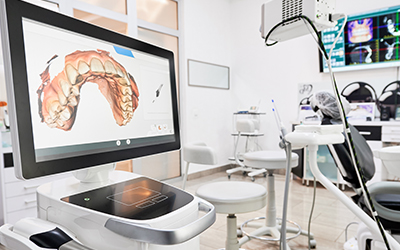Image Credit:
File ID 226792135 | © Anatoliygleb | Dreamstime.com

Our oral health is a delicate balance, and when periodontal disease creeps in, it can wreak havoc on our gums and the supporting structures of our teeth. The relationship between our gums, the bone, and the teeth they support is very intricate, and any trouble with any one of these can affect the others.
Let's take a look at how periodontal disease can lead to bone loss.
Periodontal disease, commonly known as gum disease, is a bacterial infection that affects the gums and, if left untreated, can progress to impact the surrounding bone structures.
As the disease advances, the bacteria provoke an inflammatory response, causing the gums to recede and create pockets around the teeth. This inflammation extends to the bone, initiating a cascade of events that contribute to bone loss.
The inflammation associated with periodontal disease is a key factor in the deterioration of the jawbone. Chronic inflammation triggers the activation of certain enzymes that break down the bone tissue, leading to a process known as bone resorption.
Over time, this continuous loss of bone density weakens the foundation that supports our teeth, making them more susceptible to mobility and, ultimately, loss.
As periodontal disease progresses, the loss of bone density compromises the stability of the teeth. The jawbone plays a vital role in anchoring the teeth, and when it diminishes, the teeth lose their firm foundation.
This can result in shifting, tilting, or even the loosening of teeth, affecting both the function and aesthetics of the smile. Seeking prompt treatment for periodontal disease is crucial to prevent further bone loss and maintain tooth stability.
Bone graft dental procedures are a common intervention in cases of severe bone loss resulting from periodontal disease. This procedure involves adding bone tissue to the affected area, enhancing the density and strength of the jawbone.
By opting for a bone graft, individuals can potentially restore the necessary support for their teeth, improving both function and appearance.
When periodontal disease reaches an advanced stage and causes significant bone loss, the expertise of periodontists becomes essential. Periodontists specialize in addressing complex oral health issues, including those related to bone loss due to periodontal disease.
If you’re dealing with periodontal disease, contact an oral surgeon near you in